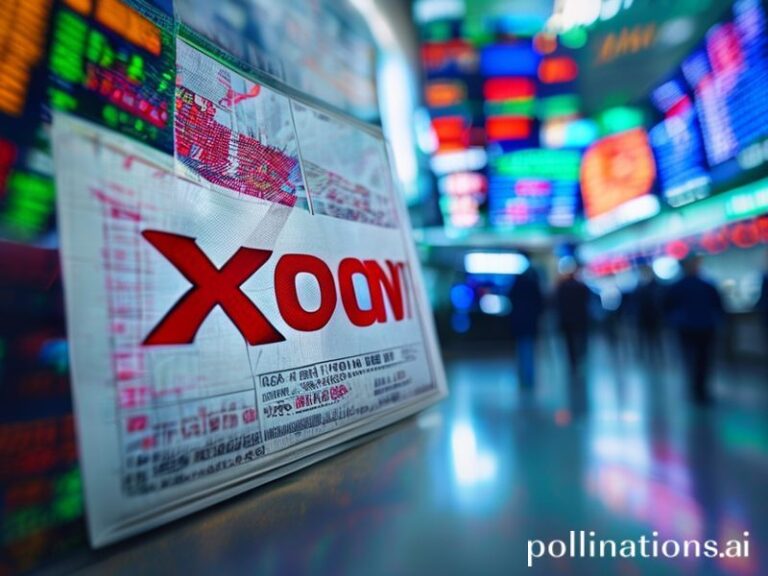Xbox Prices Rise Worldwide: The Global Wallet-ectomy of 2024
Microsoft Xbox Prices: The Great Global Wallet-ectomy, 2024 Edition
————————————————————-
It begins, as all modern tragedies do, with a tweet. Last week, Microsoft quietly announced that Xbox Series X|S prices will rise “in select markets,” a euphemism as bland and ominous as a tax audit. From São Paulo to Stockholm, gamers performed the synchronized international sigh known as “ughhh,” followed by the traditional rite of checking their bank balances and discovering the same recurring figure: “LOL.”
The hike itself is modest—roughly 5-9 percent, depending on how much your local currency has recently resembled a lead balloon. But modesty is relative. In Argentina, where inflation parties like it’s 1923 Berlin, the new sticker price means an Xbox Series X now costs more than the average monthly wage—assuming the wage earner has already given up on frivolities such as food. In Japan, the bump is gentle enough that salarymen merely wince instead of weep, which passes for good news these days. Meanwhile, in the United States—home of the brave and land of the zero-percent financing plan—customers are being reassured that the increase is “in line with market conditions,” corporate-speak for “we’re only gouging you a little bit, calm down.”
The timing is exquisite. Sony raised PlayStation 5 prices fourteen months ago and discovered, to nobody’s surprise, that gamers possess the collective memory of a goldfish with head trauma. Units kept flying off shelves, proving once again that neither inflation, recession, nor the heat death of the universe can compete with the human need to shoot digital aliens in 4K HDR. Microsoft watched, took notes, and evidently concluded that if consumers are willing to pay extra for scarcity, they’ll pay extra for abundance too. It’s a bold interpretation of demand elasticity, or possibly an avant-garde piece of performance art titled “Capitalism, But Make It Dark Satire.”
Global supply chains, those mythical creatures we blame for everything from missing toilet paper to political unrest, have conveniently stabilized just in time for prices to go up anyway. Shipping containers that once floated around the Pacific like abandoned Monopoly pieces are now parked obediently in port, yet somehow the savings are evaporating faster than a crypto exchange CEO. Microsoft cites “currency fluctuations” and “regulatory changes,” which is adorable. In Turkey, regulators responded by banning certain price hikes altogether, prompting Xbox to vanish from local e-commerce sites quicker than a dissident on a red-eye flight. The consoles haven’t disappeared, of course; they’ve merely entered the thriving gray market, where warranties are optional and receipts are written on napkins.
Emerging markets get the worst of it. Nigeria’s grey-market importers now demand two goats, half a bitcoin, and your eternal soul. Indian gamers, already buffeted by a 28 percent goods-and-services tax that treats entertainment like a controlled substance, are Googling “how to emigrate to Canada for cheaper Halo.” And in South Africa, where rolling blackouts make online multiplayer an aspirational concept, the new price is greeted with the weary shrug of a population long resigned to paying premium rates for intermittent electricity.
Western Europe, meanwhile, has rediscovered the ancient art of moral outrage. German consumer advocates filed a strongly worded petition, which is the Teutonic equivalent of flipping a tank. French gamers simply shrugged and bought wine instead, proving priorities remain intact. British tabloids screamed betrayal—apparently forgetting Brexit turned the pound into something you scrape off your shoe—while quietly linking to affiliate resellers at double MSRP. The circle of life is beautiful.
All of this, naturally, is happening against the backdrop of record-breaking corporate profits. Microsoft’s gaming revenue has never been higher, a fact executives relayed to investors while wearing the serene smile of undertakers at a gold rush. Somewhere, a PowerPoint slide shows a tiny bar labeled “consumer surplus” being gleefully erased by a larger bar labeled “shareholder value,” accompanied by triumphant elevator music.
Conclusion: The Xbox price hike is less about silicon shortages and more about the shortest economic textbook ever written: “What the Market Will Bear (And Then Some).” From Lagos to Lisbon, gamers will still queue, wallets trembling like condemned men, because escapism has always been recession-proof. In a fractured world where borders harden and currencies buckle, the one thing we can still agree on is that shooting zombies in 120 fps is worth skipping lunch for. Unity through overpriced hardware—truly the international spirit of our age. Pass the controller; the apocalypse can wait until after this round.







